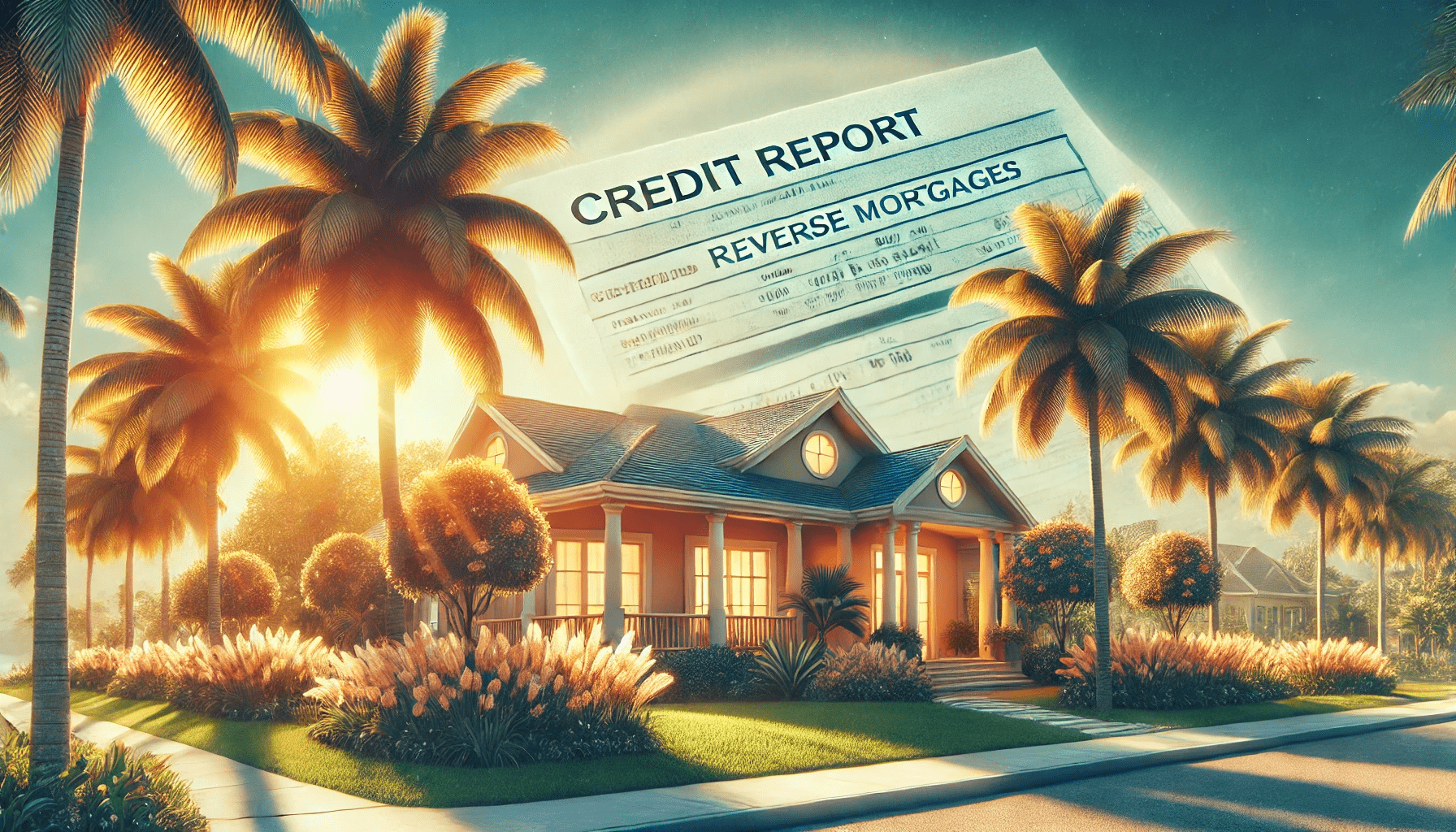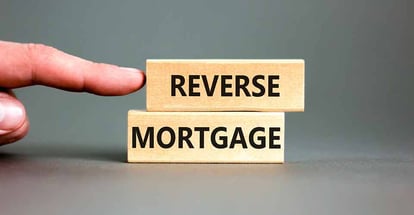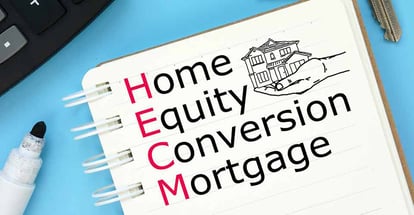Credit Score Requirements for Reverse Mortgages in Florida
Reverse mortgages are a popular option for homeowners in Florida aged 62 and older who want to access their home equity. A common question for those considering a reverse mortgage is whether a credit score is required to qualify.
Unlike traditional loans, reverse mortgages focus less on credit scores and more on an applicant’s overall financial history.
Verify Your Reverse Mortgage Eligibility
Here’s what you need to know about credit score requirements for reverse mortgages in Florida:
In this article (Skip to...)

Do Reverse Mortgages Require a Credit Score?
The good news is that reverse mortgages, specifically government-insured Home Equity Conversion Mortgages (HECMs), do not have a minimum credit score requirement.
Instead of relying on a specific credit score, lenders conduct a comprehensive review of your financial history, focusing on your ability to manage debt and meet housing obligations.
Verify Your Reverse Mortgage Eligibility
How Credit History is Evaluated
While no credit score minimum exists, a credit check is part of the financial assessment process.
Lenders will review your credit report from the three major credit bureaus to evaluate:
- Payment History: The consistency of your housing and installment debt payments over the past 12–24 months.
- Major Derogatory Credit: Any significant issues with revolving credit accounts in the last 12 months.
To meet satisfactory credit criteria, borrowers typically must:
- Make all housing and installment payments on time over the previous 12 months.
- Have no more than two 30-day late payments for housing or installment debts in the past 24 months.
- Avoid major derogatory credit issues, such as revolving account payments more than 90 days late.
If your credit history falls short, it doesn’t necessarily disqualify you.
Lenders may consider extenuating circumstances that explain financial difficulties and can also require additional steps, such as setting aside funds for property taxes and insurance.
Verify Your Reverse Mortgage Eligibility
What Happens if Your Credit History is Less Than Ideal?
For borrowers with less-than-ideal credit histories, lenders may require a Life Expectancy Set Aside (LESA).
This reserve from the reverse mortgage funds ensures timely payment of property taxes and homeowners insurance, reducing the lender’s risk and helping you stay compliant with loan terms.
Verify Your Reverse Mortgage Eligibility
Other Factors Beyond Credit History
Creditworthiness is just one part of reverse mortgage eligibility. Additional factors include:
- Age: Borrowers must be at least 62 years old.
- Home Equity: You need significant equity in your home, often around 50%.
- Ability to Meet Ongoing Costs: Applicants must show they can cover ongoing property expenses like taxes, insurance, and maintenance.
Credit Requirements vs. Other Loan Types
Here’s a quick comparison of how reverse mortgage credit requirements stack up against traditional mortgages and HELOCs:
| Loan Type | Credit Score Required | Credit History Reviewed | Income Verification Needed | Debt-to-Income Ratio |
|---|---|---|---|---|
| Reverse Mortgage | No minimum | Focuses on past 12–24 months' payments | No | Less stringent than others |
| Traditional Mortgage | 620+ | Thorough review | Yes | Typically below 43% |
| HELOC | 620+ | Good payment history required | Yes | Below 50% |
Verify Your Reverse Mortgage Eligibility
Credit Score Requirements for Different Types of Reverse Mortgages
Reverse mortgages come in several types, each catering to different needs.
While no specific credit score is required for these loans, the financial assessment process varies slightly based on the type of reverse mortgage.
Here’s how credit history plays a role in each:
Home Equity Conversion Mortgage (HECM)
HECMs are federally insured reverse mortgages designed for homeowners aged 62 and older, offering flexible payout options like lump sums, monthly payments, or a line of credit.
These loans do not require a minimum credit score, but lenders review housing and installment payment history for the past 12–24 months; poor credit may require a Life Expectancy Set Aside (LESA) to cover taxes and insurance.
Proprietary Reverse Mortgages
Proprietary reverse mortgages are private loans for homeowners with high-value properties, allowing access to more substantial funds than HECMs.
While there is no strict credit score requirement, lenders often emphasize credit history to mitigate risk, with stronger credit improving the likelihood of favorable terms.
Single-Purpose Reverse Mortgages
Single-purpose reverse mortgages are offered by state or local governments and nonprofits for specific uses, such as home repairs or property taxes, and are typically the most affordable reverse mortgage option.
These loans generally have minimal credit requirements, though lenders may check payment histories to ensure ongoing financial obligations are manageable.
Jumbo Reverse Mortgages
Jumbo reverse mortgages are proprietary loans tailored for homes with high market values, offering access to larger amounts of equity than HECMs.
Credit evaluations are often stricter due to the higher loan amounts, and borrowers with strong credit histories are more likely to secure better terms.
FAQs
Can you get a reverse mortgage with bad credit?
Yes, you can still qualify for a reverse mortgage with bad credit.
However, you may be required to set aside funds to cover property-related costs or provide additional explanations for past financial issues.
Will a reverse mortgage impact your credit score?
Reverse mortgages typically don’t affect your credit score, as they don’t require monthly payments.
However, using the funds to pay off existing debts could improve your credit.
Does a reverse mortgage show up on a credit report?
Most lenders do not report reverse mortgages to credit bureaus because no monthly payments are required.
With over 50 years of mortgage industry experience, we are here to help you achieve the American dream of owning a home. We strive to provide the best education before, during, and after you buy a home. Our advice is based on experience with Phil Ganz and Team closing over One billion dollars and helping countless families.

About Author - Phil Ganz
Phil Ganz has over 20+ years of experience in the residential financing space. With over a billion dollars of funded loans, Phil helps homebuyers configure the perfect mortgage plan. Whether it's your first home, a complex multiple-property purchase, or anything in between, Phil has the experience to help you achieve your goals.


 By
By  Edited by
Edited by 




